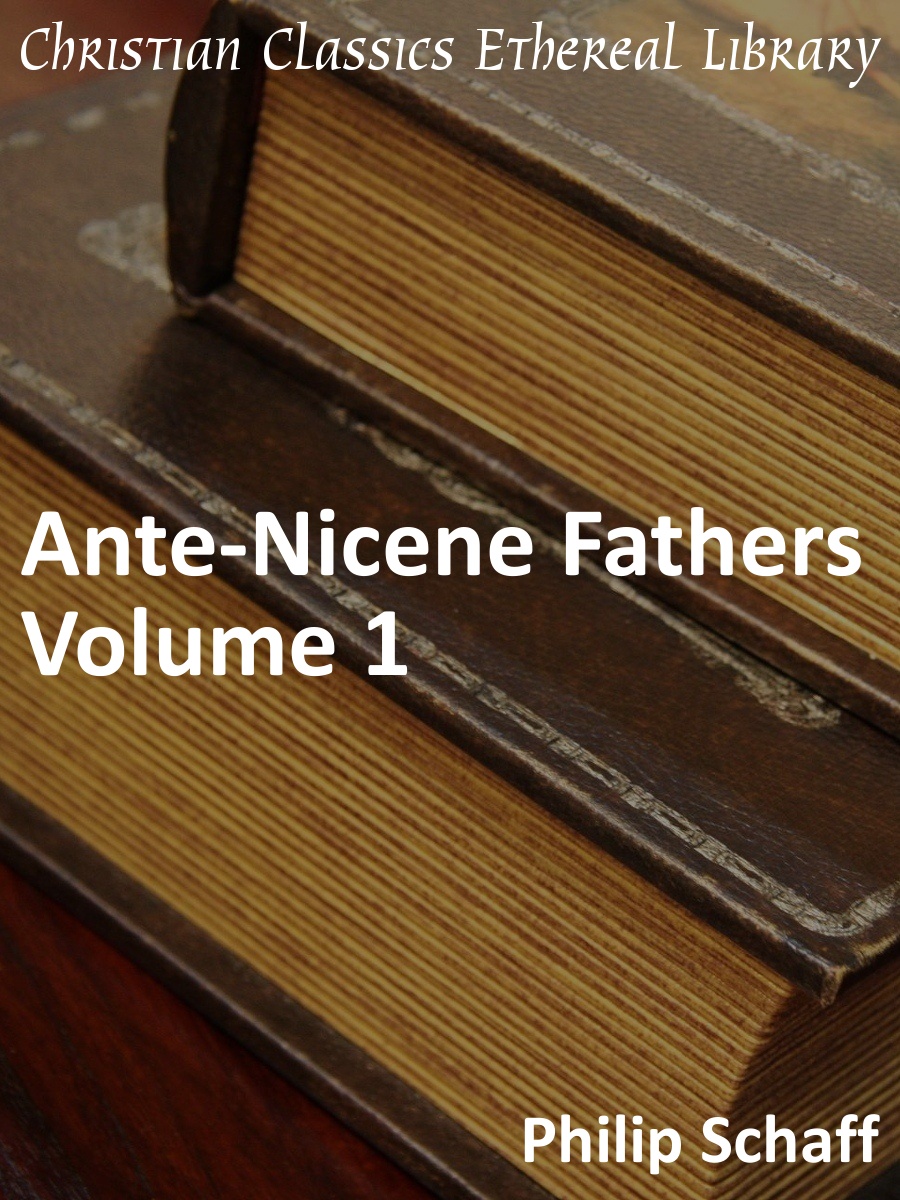Show only:
Classics only
Sort by:
CCEL Search results
NPNF-211. Sulpitius Severus, Vincent of Lerins, John Cassian by Schaff, Philip (1819-1893)
Wherefore I will briefly explain what advantages I now enjoy in this manner of life. You must consider my words and judge whether those advantages of the desert outweigh these comforts, and by this you will also be able to prove whether I chose to be cramped within the narrow limits of the Cœnobium from dislike or from desire of that purity of the solitary life.
Princess and the Goblin by MacDonald, George (1824-1905)
CHAPTER XII A SHORT CHAPTER ABOUT CURDIE CURDIE spent many nights in the mine. His father and he had taken Mrs. Peterson into the secret, for they knew mother could hold her tongue, which was more than could be said of all the miners' wives.
Little Flowers of St. Francis of Assisi by Ugolino, Brother (13th-14th c.)
CHAPTER VI HOW BROTHER GILES WAS MIRACULOUSLY ASSISTED IN A GREAT NECESSITY WHEN, BY REASON OF A HEAVY FALL OF SNOW, HE WAS HINDERED FROM GOING OUT TO QUEST. Brother Giles was once staying in Rome, at the house of a Cardinal, when Lent was drawing near; and being unable there to enjoy the quiet of mind which he desired, he said to the Cardinal: “My Father,…
Conferences of John Cassian by Cassian, John (360-435)
Of the conveniences of the coenobium. WHEREFORE I will briefly explain what advantages I now enjoy in this manner of life. You must consider my words and judge whether those advantages of the desert outweigh these comforts,…
Commentary Critical and Explanatory on the Whole Bible by Jamieson, Robert (1802-1880)
Amos (meaning in Hebrew "a burden") was (Am 1:1) a shepherd of Tekoa, a small town of Judah, six miles southeast from Beth-lehem, and twelve from Jerusalem, on the borders of the great desert (2Ch 20:20; compare 2Ch 11:6).
World English Bible by Anonymous (Bible)
Chapter 15 Then Pharisees and scribes came to Jesus from Jerusalem, saying, “Why do your disciples disobey the tradition of the elders? For they don’t wash their hands when they eat bread.” He answered them, “Why do you also disobey the commandment of God because of your tradition? For God commanded, ‘Honor your father and your mother,’ and, ‘He who speaks evil of father or mother,…
ANF07. Fathers of the Third and Fourth Centuries: Lactantius, Venantius, Asterius, Victorinus, Dionysius, Apostolic Teaching and Constitutions, Homily, and Liturgies by Schaff, Philip (1819-1893)
Divine Institutes by Lucius Caecilius Firmianus Lactantius (c.240-c.320)
. After these things the lower regions shall be opened, and the dead shall rise again, on whom the same King and God shall pass judgment,…
ANF01. The Apostolic Fathers with Justin Martyr and Irenaeus by Schaff, Philip (1819-1893)
ANF04. Fathers of the Third Century: Tertullian, Part Fourth; Minucius Felix; Commodian; Origen, Parts First and Second by Schaff, Philip (1819-1893)
. We have mentioned in the preceding pages that there are some of the declarations of Jesus which refer to that Being in Him which was the “first-born of every creature,” such as, “I am the way,…
Wesley's Notes on the Bible by Wesley, John (1703-1791)
1. Younger - Whom both universal custom, and the light of nature, taught to reverence their elders and betters. Whose fathers - Whose condition was so mean, that in the opinion, of the world, they were unworthy to be my shepherds the companions of my dogs which watch my flocks.
Commentary on Jeremiah and Lamentations - Volume 1 by Calvin, John (1509-1564)
1 Who will make my head waters And mine eye a fountain of tears! Then would I bewail, day and night, The slain of the daughter of my people. 2 Who will set me in the desert, In the lodging of travelers! Then would I leave my people And depart from them: For all of them are adulterers, An assembly of perfidious men.

